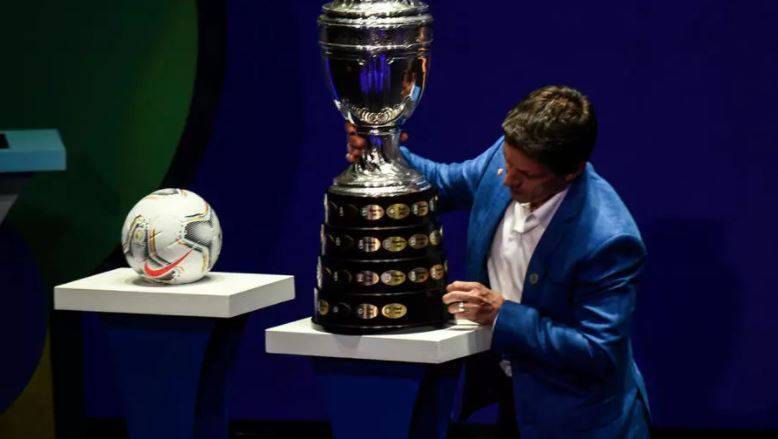A rise in COVID-19 cases and violent protests... A cloud of uncertainty covers Copa America 2021 less than a month before its kickoff in Argentina and Colombia, despite both hosts affirming their commitment thus far. In Colombia, bloody protests have shaken the country for two weeks, triggered by an increase in the value-added tax and the expansion of the income tax base. The tax reform bill was withdrawn, but discontent persisted and turned into broader anti-government protests in a country struggling with ongoing violence and economic difficulties exacerbated by the COVID-19 outbreak. Clashes with security forces have resulted in 42 deaths and 1,500 injuries. Few Colombians are thinking about football, but the government is attempting to leverage the continental tournament as a symbol of unity.
At this moment, it is hard to imagine organizing the tournament, postponed from last year due to the coronavirus, in Medellín, Cali, Bogotá, and Barranquilla, which is set to host the final on July 10. Conservative President Iván Duque affirmed days ago that "Copa America will take place (...) in both countries." According to the president, organizing the tournament will be "an important message at this moment."
However, clashes erupted Thursday with police, who used tear gas near the Barranquilla stadium, resulting in the suspension of the match between Brazil's Atletico Mineiro and Colombia's America Cali (3-1) five times in the Copa Libertadores. During the first half, players sought shelter in the locker rooms out of fear of the confrontations. On Wednesday in Pereira, the kickoff of the match between Uruguay's Nacional and Colombia's Atletico Medellín (0-0) was delayed by an hour due to events outside the guests' hotel. In Barranquilla, the match between Argentina's River Plate and Colombia's Junior was postponed for several minutes due to the irritating gas.
River Plate coach Marcelo Gallardo said after the match, "It’s unnatural to play a football match under unstable conditions, amidst what the Colombian people are experiencing." On Friday, Brazilian team coordinator Juninho Paulista stated that he is monitoring "the situation daily in coordination with the South American Football Confederation." The 2002 World Cup champion added, "We have made it clear that we do not want to repeat what happened" in Cali with Atletico Mineiro. Brazilian coach Tite also expressed concerns on Friday during an announcement of players for the World Cup 2022 qualifiers, scheduled a week before Copa America kicks off on June 13.
It is worth noting that in 2001, Colombia hosted the finals despite ongoing bloody conflicts with leftist militias. At that time, Argentina and Canada withdrew their invitations, and Costa Rica and Honduras stepped in, while Brazil and Uruguay sent reserve squads, allowing the finals to be held without issues, and Colombia secured its first title.
- Locked Doors and Vaccination -
The continental federation (CONMEBOL) did not directly address the Copa America issue on Thursday during a virtual meeting, according to an internal source of the French Press Agency. However, other reports indicated the readiness of other countries to step in instead of Colombia. The source confirmed that Colombia remains "determined" and has "no doubts about hosting." The Copa America was also not mentioned in the announcement of the host cities for the finals of the Libertadores and Sudamericana Cups scheduled for November 2021 at Centenario Stadium in Montevideo.
While the continental federation has not expressed any worries and has launched the official song for the tournament, Argentine President Alberto Fernández has been clearer, following the infection of over 3 million of his citizens and the death of 68,000 people. He stated in late April, "I don’t want to ruin the joy of Copa America, but I want us to be very rational, very cautious." Like most South American countries, COVID-19 cases have risen in Argentina and Colombia, leading to strain on the healthcare system. Since then, no official statements have been issued by Argentina, which is focused on trying to curb the rise in COVID-19 cases. In Colombia, the protests could lead to an increase in virus infections. The tournament will be held behind closed doors. The continental federation is betting on vaccinating the entire professional football community in South America with the distribution of 50,000 doses provided by the Chinese pharmaceutical company Sinovac.




